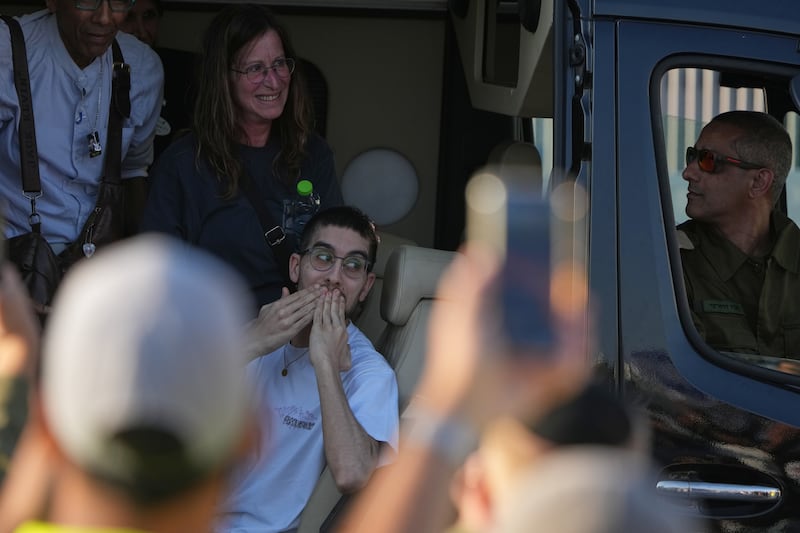Watching the emotional videos of the Israeli hostages being returned from Gaza, many observers were haunted by the question of what would happen next. How would Hamas be deradicalized (as President Donald Trump’s 20-point peace plan suggested)? Who will rule Gaza? How will Israel prevent future attacks?
But there is another, perhaps less urgent, but no less important question. What will we tell our children about the past two years?
I did not grow up around antisemitism. Or at least none that I knew of. My parents had moved to Worcester, Massachusetts in the mid-1970s, shortly before I was born. And while I occasionally heard of country clubs that didn’t allow Jews and even neighborhoods where Jews were not welcome, I cannot recall a single instance of someone using an ethnic slur against me. I don’t even remember overhearing an antisemitic comment.
It was not that everyone around me was always kind. It was just that my being Jewish didn’t seem to have anything to do with their animosity.
And it was not that I didn’t know history. My grandparents all came from Russia and Poland. Their families knew pogroms. My ancestors mostly came here before the Holocaust, but I had friends whose family trees were decimated by the concentration camps. I still remember the first tattoo I saw.

At my Jewish elementary school, we sang songs about the Refuseniks—“We are leaving Mother Russia, we have waited far too long.” I was assigned a bat mitzvah “twin” in the Soviet Union, a girl who was not allowed to celebrate the rite of passage herself.
I was not surprised by the Oct. 7 attack in the sense that I knew Israel was surrounded by murderous and suicidal enemies. Living next door to a death cult means you can never feel secure. I have followed some of the campus controversies of Black studies scholars like Leonard Jeffries with his crazed conspiracy theories about Jews.
But still, antisemitism seemed to me something long ago or far away. How much was I missing?
I remember one day when my kids were little and my husband was outside when the garbage truck came by. The workers started talking to him about how the town we lived in was overrun by Jews. Because he’s Black they didn’t suspect that his wife and children were Jewish. How much antisemitism was just under the surface?
But at least it was under the surface, I thought. At least people worried about expressing these sentiments out loud. Maybe some of the Jews’ staunchest Christian allies knew better than we did what was underneath.
Regardless, now, as many have observed, the Overton window has shifted. Millions have marched in cities across the West shouting murderous slogans like “Globalize the intifada” or “From the river to the sea.” Jews have been beaten by mobs after soccer games and attacked on university campuses. The likely future mayor of New York City has supported the BDS movement, is threatening to arrest the prime minister of Israel, and spent the day after the ceasefire was announced fundraising for UNRWA (whose employees cooperated in the October 7 massacre).

As Bari Weiss noted in a speech last year, “History is back. The Old World is not coming back. It is on us to build the new one — and to ensure that it is free.”
But what will be the foundation of that new world? Surely, it should involve support for Jewish education and religious observance and community. Jews who don’t know about their heritage and their rituals and their intellectual tradition are not as likely to defend their people fiercely. What are they protecting?

But along with that pride, I think we need to put some fear in our children and grandchildren. Antisemitism is not simply intolerance or meanness. It’s not even just racism. It is the oldest hatred in history. As we repeat during the Passover seder — “in every generation they rise up to destroy us.” The ones who seek to destroy us are not some fringe element who can be ignored.
When one of the hostages was asked in an interview about who held him captive, the answer was not soldiers. He said: “One of the guards was a first-grade teacher, another was a lecturer at a university, and another was a doctor. These are normal people becoming terrorists.”
This is what I will tell my children and grandchildren about this time and their time. Antisemitism is not a passing fad. It’s not something that happens elsewhere. Even the United States — the safest haven for Jews in history — is not immune. And antisemitism, if it is allowed to fester, has the potential to turn normal people into terrorists.



